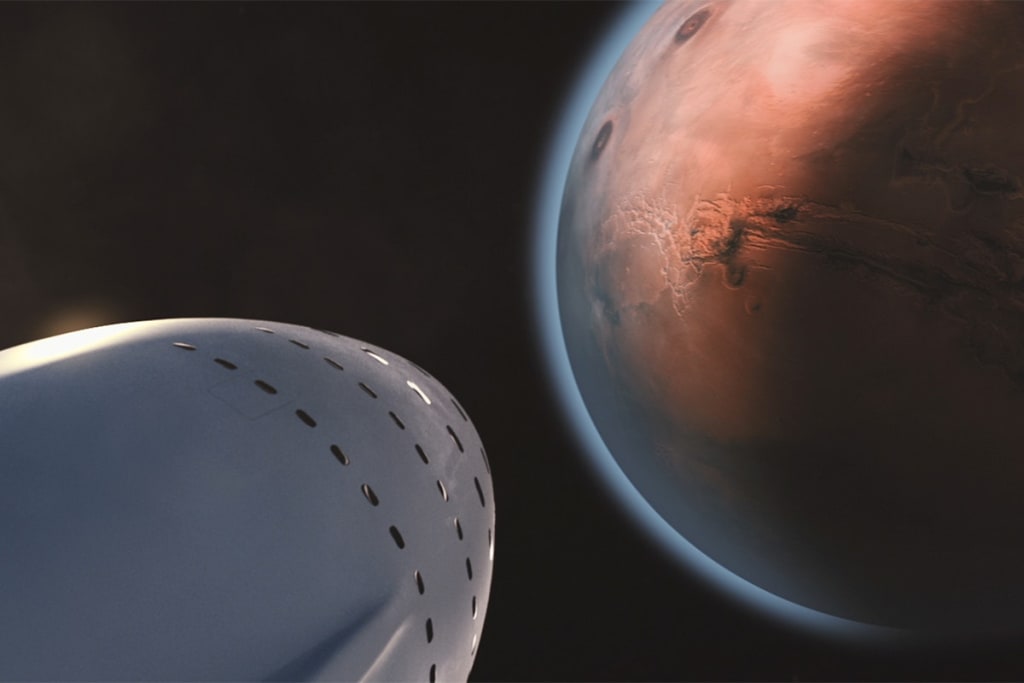Red in the Sky: Mars
What do we know about Mars

Mars, the fourth planet from the sun, is one of the most studied planets in our solar system. It has long fascinated humans with its reddish hue, vast deserts, canyons, and mountains, making it a subject of numerous scientific research and exploration missions.
One of the most significant features of Mars is its size, which is about half the size of Earth. The planet's distance from the sun and its thin atmosphere, consisting mainly of carbon dioxide, result in Mars is a cold, barren planet with an average temperature of -63°C (-81°F). However, this has not deterred scientists and space agencies from exploring Mars, as the planet has enormous scientific potential, including the possibility of finding signs of the past or present life.
Evidence suggests that Mars may have had liquid water on its surface in the past, which is a key requirement for life as we know it. The planet's surface is marked by dry riverbeds, canyons, and lake beds, which have led scientists to believe that liquid water once flowed on Mars. The presence of water is one of the most important factors for the potential for life on Mars. Several missions have been launched to Mars to study its potential for life, including NASA's Perseverance rover, which landed on Mars in 2021.
Perseverance's primary goal is to search for signs of ancient microbial life and collect samples of the Martian soil and rock for analysis on Earth. The rover is equipped with advanced scientific instruments that will help scientists better understand the planet's geology and history, as well as its potential for human exploration and colonization.
Mars also has a unique geological history, with features that are not present on Earth. The planet's surface is dominated by vast deserts, canyons, and mountains, with the largest volcano in the solar system, Olympus Mons, towering over 22 kilometres (14 miles) high. Mars also has a massive canyon system, Valles Marineris, which stretches over 4,000 kilometres (2,500 miles) long and is up to 7 kilometres (4 miles) deep.
Understanding the geological history of Mars is important for understanding how the planet has evolved over time. There is evidence to suggest that Mars was once much warmer and wetter than it is today, with a much thicker atmosphere that may have supported life millions of years before. However, over time, the planet's atmosphere was stripped away because of the loss of its magnetic field, This process was quick because the Sun rotated much faster in its youth, which made the solar wind more energetic. So, cold and warm are domineer on Mars.
Despite the inhospitable conditions, Mars has enormous potential for human exploration and colonization thanks to its world-like specialities. Several space agencies, including NASA and the European Space Agency, are working on missions to send humans to Mars, with the ultimate goal of establishing a permanent human presence on the planet. This would be a significant milestone in human history, opening up new possibilities for the exploration and colonization of other planets in our solar system and beyond.
In conclusion, Mars is a fascinating planet with enormous scientific potential, and it can be used to make a revolution in the science world. Its unique geological features, potential for life, and potential for human exploration and colonization make it a subject of ongoing scientific research and exploration. As we continue to explore and learn more about Mars, we will undoubtedly uncover new information that will deepen our understanding of the planet and its potential for future exploration and habitation.
About the Creator
Enjoyed the story? Support the Creator.
Subscribe for free to receive all their stories in your feed. You could also pledge your support or give them a one-off tip, letting them know you appreciate their work.
Reader insights
Outstanding
Excellent work. Looking forward to reading more!
Top insights
Compelling and original writing
Creative use of language & vocab
Excellent storytelling
Original narrative & well developed characters
Eye opening
Niche topic & fresh perspectives
Masterful proofreading
Zero grammar & spelling mistakes





Comments
There are no comments for this story
Be the first to respond and start the conversation.